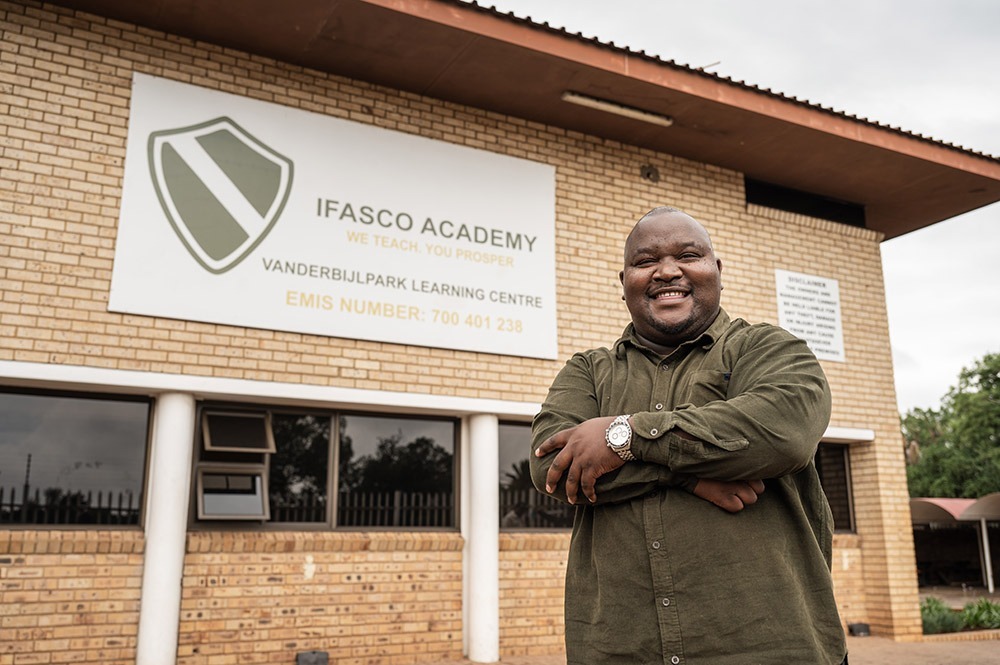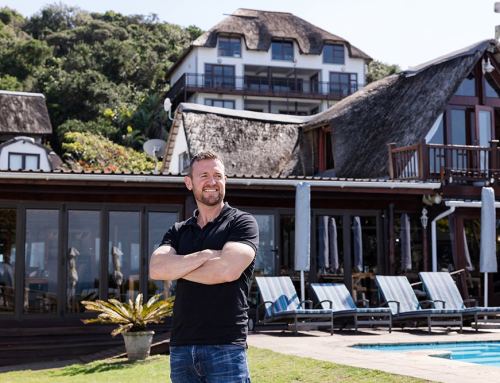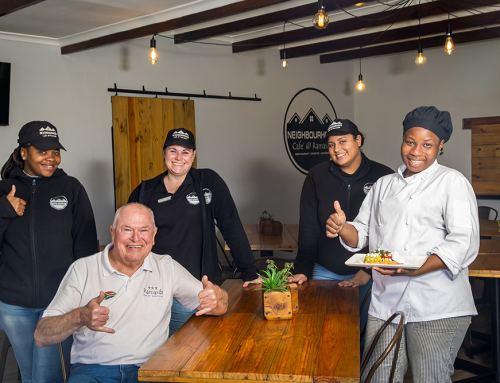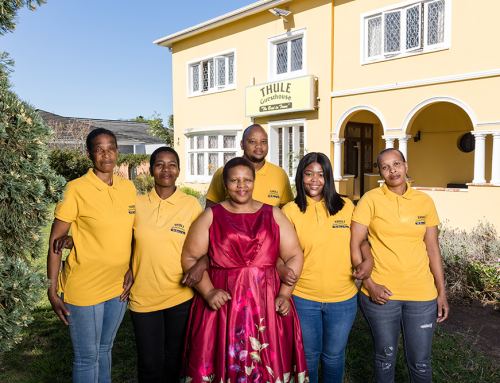It’s rare for the story of a single entrepreneur to highlight on one of South Africa’s greatest obstacles to progress and at the same time embody the ultimate solution to the problem.
Nyangani Tshabalala was still a student in applied mathematics and physics at the Nelson Mandela University when he started a programme to help struggling learners who failed their matric exams with a second chance. The need was so great and the tutoring that he offered so effective that the programme blossomed into a sustainable and thriving business in the Izinyoka Township in Gqeberha, until the local mafia destroyed it.
What began as gangsters posing as protectors soon escalated into three break-ins in short succession, followed by a devastating tragedy, the fatal shooting of Nyangani’s younger brother. The loss shattered the Tshabalala family and destroyed the project.
A lesser entrepreneur, especially someone with a maths and physics degree, would have given up and pursued a safe corporate career, but the tragedy forged Nyangani’s passion for teaching into a steely determination to fight the forces of destruction in South Africa.
Nyangani closed operation in Gqeberha and returned home to the Vaal, Gauteng where he was born and raised by his mother, who was a single parent and a domestic worker.
This time, Nyangani forged an alliance with the Vaal University of Technology, and later set up a branch for his business, called the Institute for Applied Science and Commerce (Ifasco) in Vanderbijlpark and Braamfontein, selecting the locations carefully for safety and accessibility.
Today, Ifasco is a fully fledged school with 460 learners and a second-chance finishing programme with 369 students. Although Nyangani had to start from scratch when he moved Ifasco to the Vaal, he had gained deep insights into what makes a successful business model for second-chance education.
One key lesson was retention. Nyangani discovered that when programmes offer standard matric subjects, the competition rate is barely 10 percent. However, integrating vocational training alongside the academic subjects, such as electrical work, plumbing, cellphone repair, and home-based health care, the retention rates increase significantly. Many graduates even go on to start their own businesses.
A key strategy that allowed him to relaunch successfully was what he calls “the power of negotiation”. He persuaded the Vaal University of Technology to give Ifasco use of its facilities to get started, later convincing the municipality to provide a bigger premises. He also persuaded Armscor, who had funded his science degree, to release him from his work obligation by showing them the massive social impact that his business was having.
Nyangani says Ifasco quickly achieved its break-even threshold of 130 learners, but two major challenges remained. The first and most pressing was a legal problem, the South African law does not allow standalone second-chance finishing schools. They must operate as part of a regular school, forcing Nyangani to establish a full Grade 1-11 school to complement his programme. Till today, the lack of a proper legal framework for second-chance education remains one of the toughest hurdles for entrepreneurs in this space, says Nyangani.
The second challenge was managing the overwhelming demand for Ifasco’s programme, driven by the success of its unique matric-plus-vocational-training model. As the school expanded rapidly, so did the monthly rental of its growing facilities. It was clear that Ifasco would be better off if it could convert its rental into a bond.
Nyangani approached Business Partners Limited, who did not take long to decide to finance the purchase of a school building for Ifasco. They even helped to look for suitable premises after his first choice failed to meet zoning requirements. “It is truly motivating for me as an entrepreneur to know that there are people like Business Partners Limited who care about your business,” he says.
His resilience and impact earned him the Impact Business Entrepreneur of the Year® award in the Business Partners Limited Entrepreneur of the Year® awards last year, a recognition that opened new doors, including an SABC radio programme on education which allows him to promote awareness of second-chance education.
Looking ahead Nyangani’s next steps are bold, to franchise the Ifasco model and make second-chance education accessible throughout South Africa.







